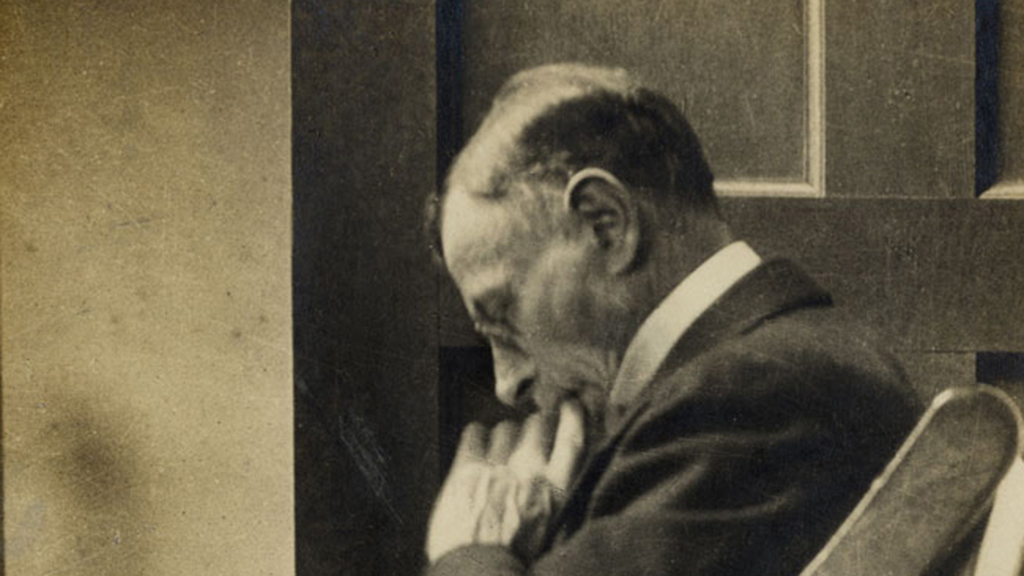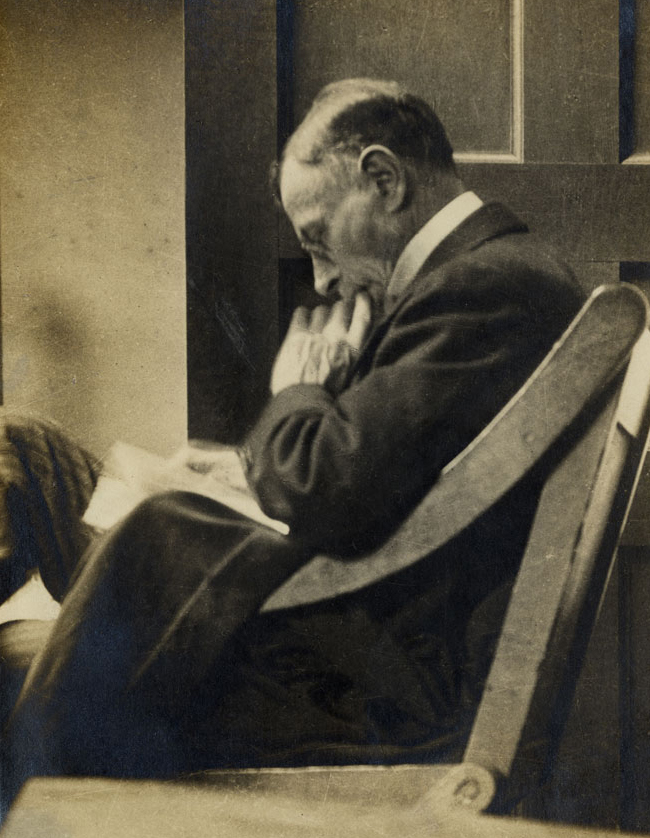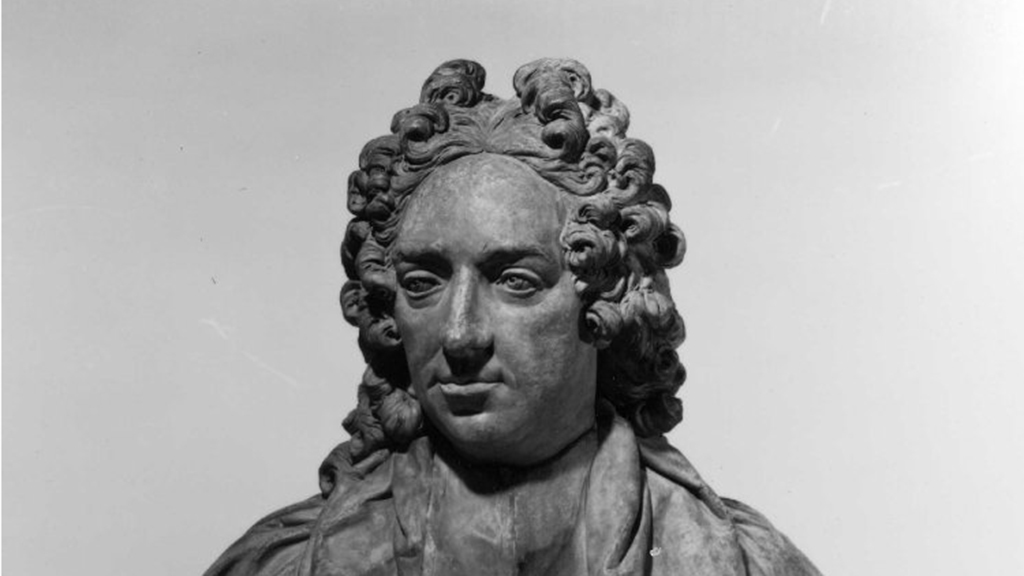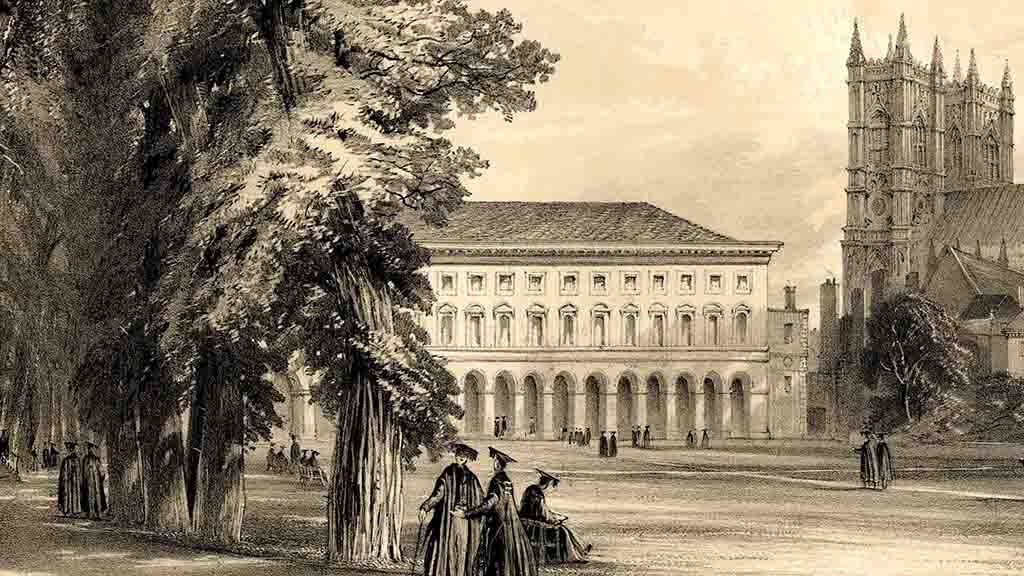In the brighter areas of the Library, beyond the Book Stack and Milne rooms, there stands a room with 2 tables and a collection of chairs, along with large numbers of historical and literary books. It is in this room that the Library Committee holds its meetings and it was in this room that that great Master of the VIth Form, John Sargeaunt, taught.
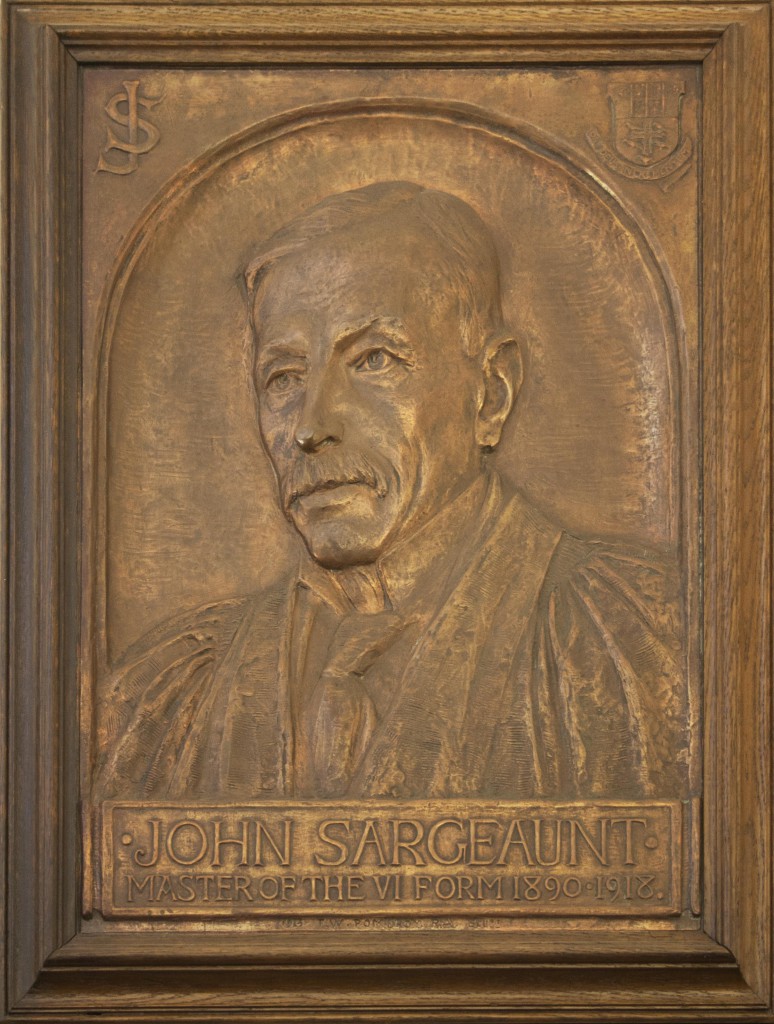 The relief of the man presides above the threshold of the John Sargeaunt room, reminding those who look up of the academic heritage on which they stand. Described as ‘a skeleton of a man with dark hair and grey-blue eyes, a skin like wrinkled parchment, and a deep voice…with his cap askew’ in his obituary of the March 23rd 1922 copy of The Times, he was famous among students for his enthusiastic and eccentric teachings on, apparently, most of English Literature and 19th Century history. He, as the Oxford Dictionary of National Biography put it, ‘taught by digression’ quoting literature from Chaucer to Virgil, Terence to Walpole.
The relief of the man presides above the threshold of the John Sargeaunt room, reminding those who look up of the academic heritage on which they stand. Described as ‘a skeleton of a man with dark hair and grey-blue eyes, a skin like wrinkled parchment, and a deep voice…with his cap askew’ in his obituary of the March 23rd 1922 copy of The Times, he was famous among students for his enthusiastic and eccentric teachings on, apparently, most of English Literature and 19th Century history. He, as the Oxford Dictionary of National Biography put it, ‘taught by digression’ quoting literature from Chaucer to Virgil, Terence to Walpole.
His keen mind and eccentric wit attracted the attention of The Club, a somewhat arrogant but rebellious group of young liberals attempting to forge new political pathways and play with great philosophy and science in their conversations. Visiting their dinners extremely loyally, he often expressed his favour of Samuel Johnson, writing numerous political essays in support of his liberal views and openly agreeing with his controversial hatred of music.
He was apparently able to recite from memory 50 lines of Virgil at a time and was noted in The Club to be one of the two people in the country with the ability to quote Boswell’s work with complete accuracy: A student once wrote: We, too, must make all knowledge our province, if only to catch him out.’ Perhaps not surprisingly, having seen these feats, he was considered by many to have the best memory in the country in his time.
‘J.S.’ is also the only teacher and, potentially, person to have ever had 2 leading articles in addition to his obituary in The Times (one in 1922 on his death and another in 1935 on the centenary of his birth).
It seems that within his area of academia (history and classics), Sargeaunt was seriously accomplished: he wrote countless volumes of poems, he translated many of Virgil’s epic poems into English hexameter, he authored a lovely book The Trees, Shrubs and Plants of Virgil seeing as he was a gardening fanatic and, perhaps most famously, was the creator of that great tome Annals of Westminster School.

